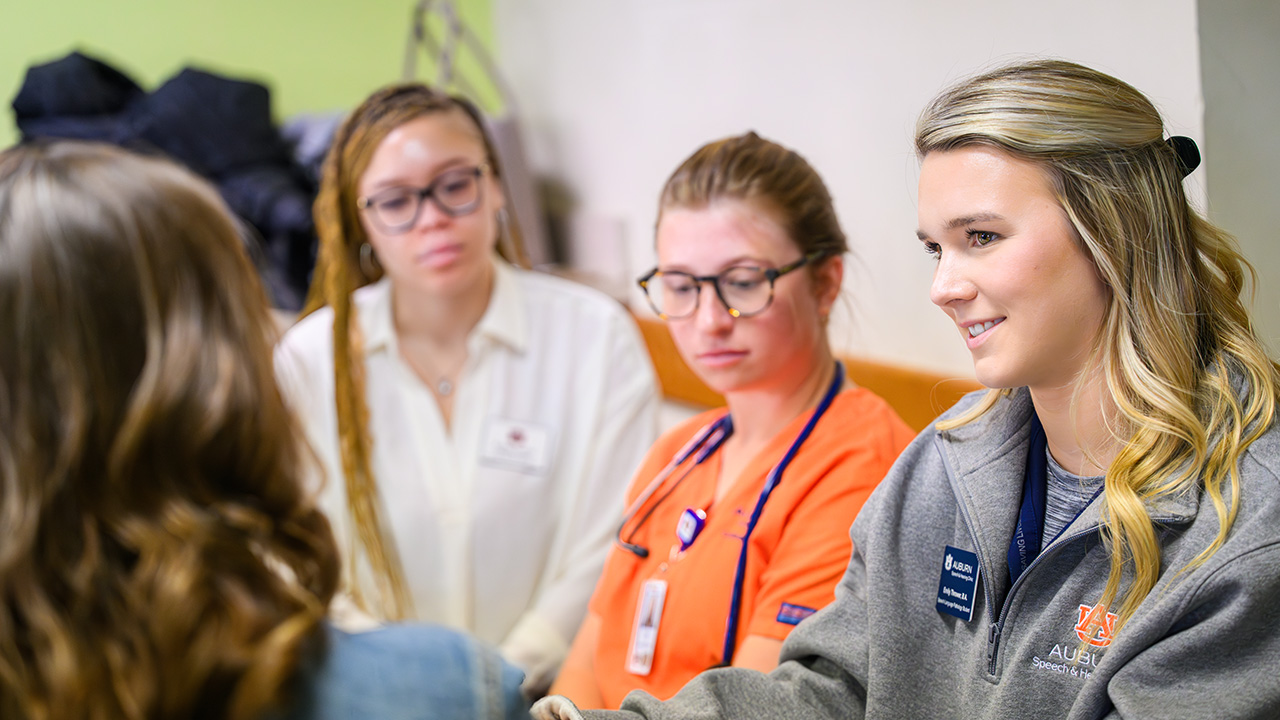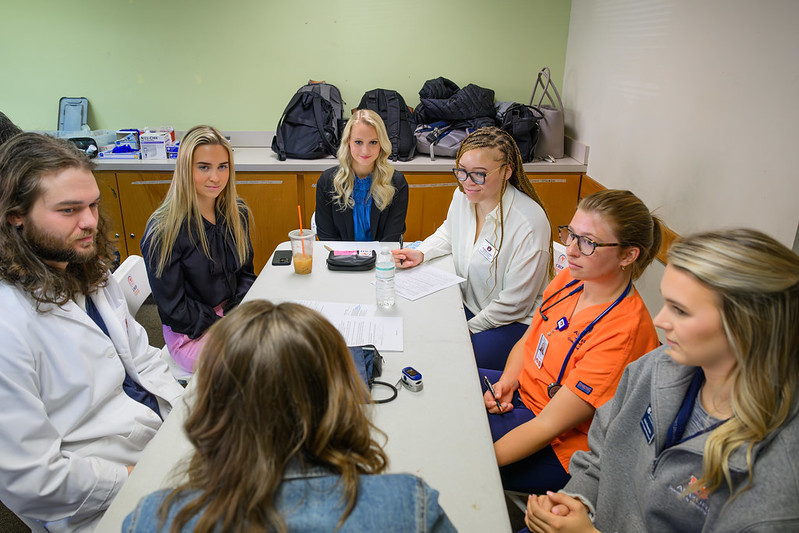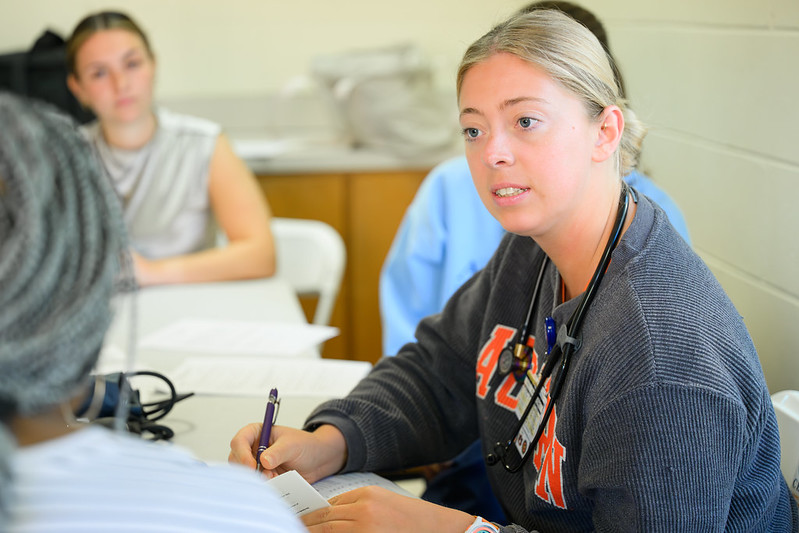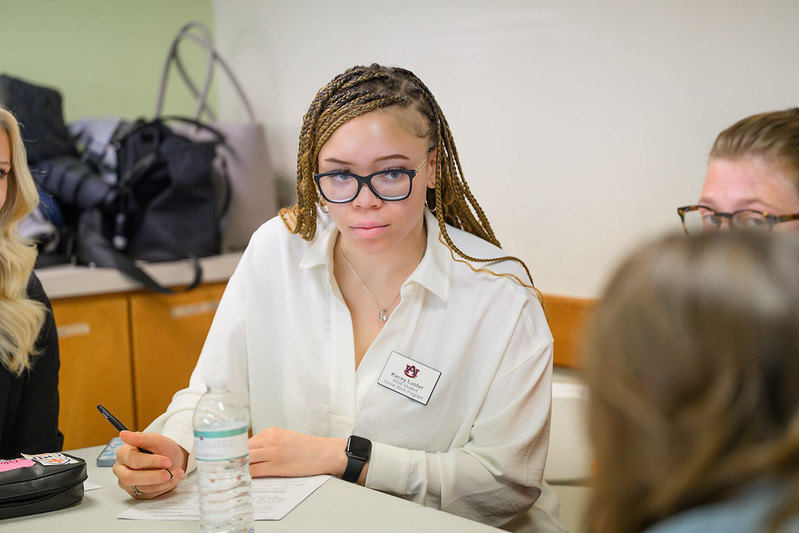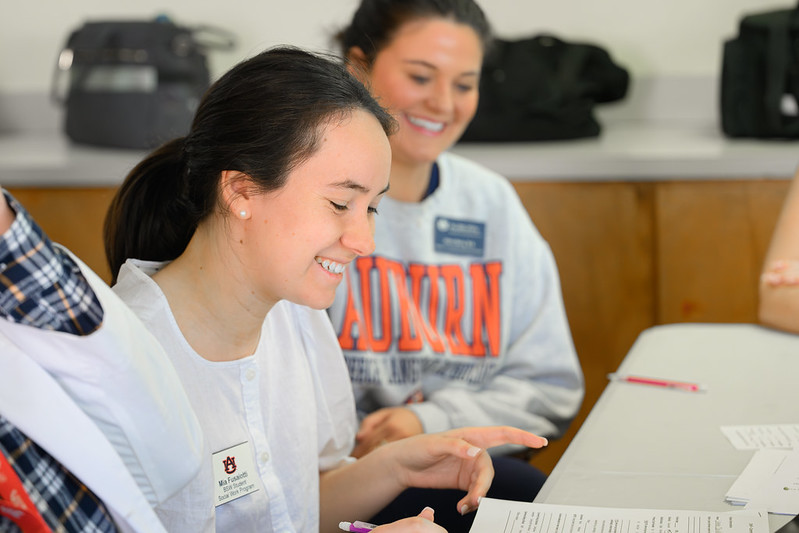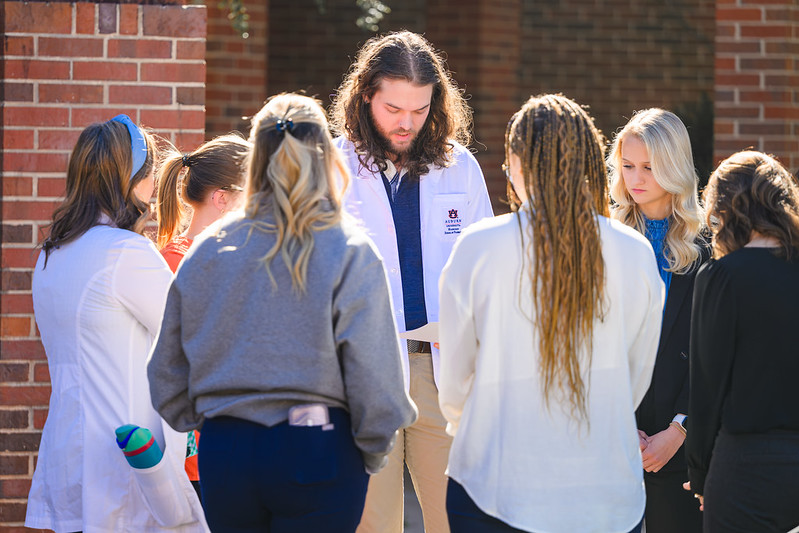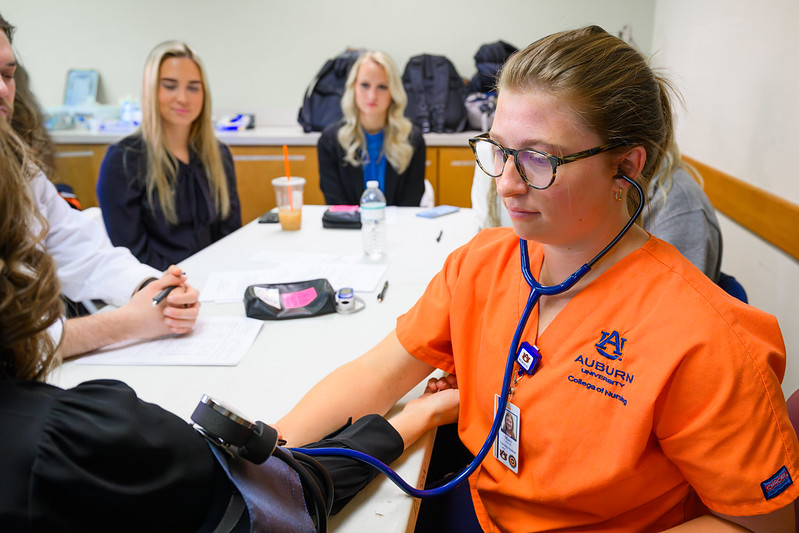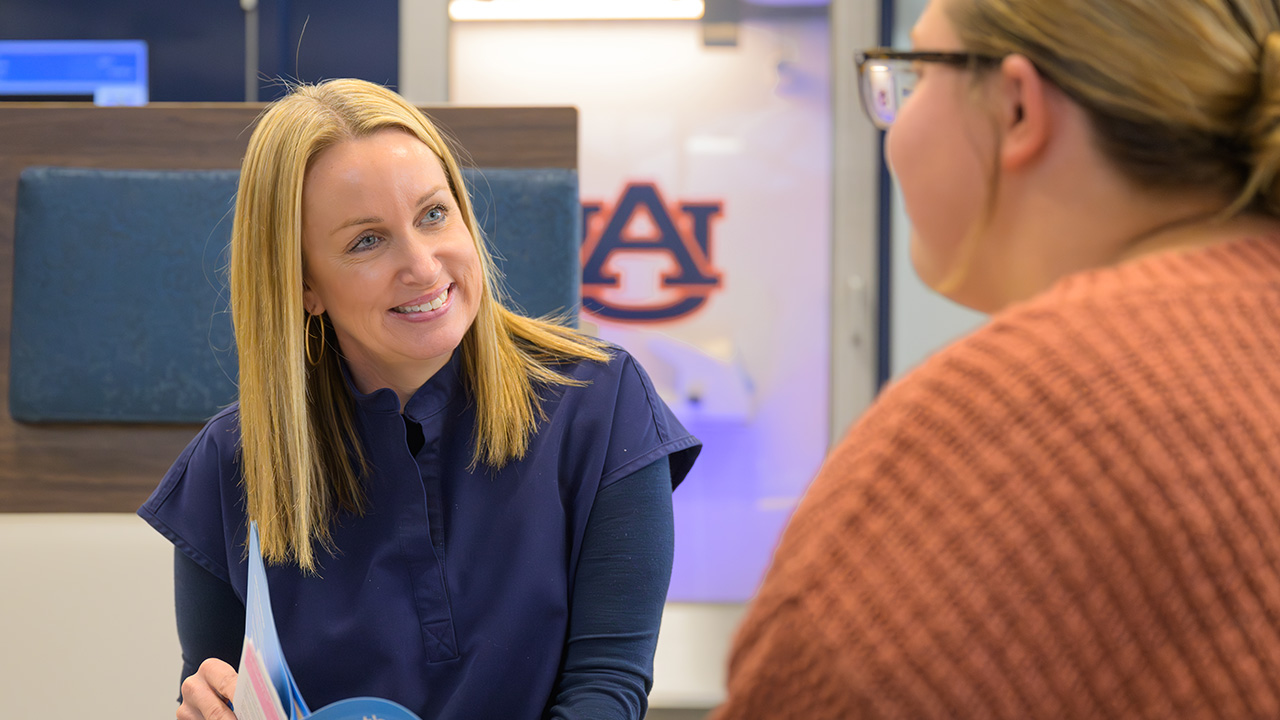content body
What do you get when you put a nurse, a social worker, a nutritionist, a speech-language pathologist and a pharmacist together in one room?
You get a complete picture of a patient’s health and wellness, and that’s exactly what students deliver to community members who attend clinics run by Auburn University’s Interprofessional Education (IPE) program.
IPE gives students from health-related majors the opportunity to practice working with other disciplines — just as they will when they enter the professional health care field. For example, a social worker in a hospital setting will work with nurses, doctors, administrators, pharmacists and therapists of all kinds, and it’s this kind of experience that Auburn students will gain well before graduation.
Most health-related programs must include IPE in their curriculum to be accredited. While many on campus have never heard of it, hundreds of Auburn students participate each semester.
“Typically, students don’t know about it until they are involved,” said Jennifer Slay, an assistant clinical professor in social work. “The Interprofessional Education Collaborative is a huge national organization that has developed competencies for practicing inter-professionally within these disciplines. And there are so many disciplines that can participate — pretty much anything you can think of.”
Those disciplines include programs in the College of Nursing, the College of Liberal Arts, the Harrison College of Pharmacy and the College of Human Sciences. Every semester, faculty members from these four colleges come together to offer a poverty simulation activity and present seminars on what interprofessional communication should look like. Then, they schedule weekly IPE clinics where students are charged with assessing patients’ health from the perspective of their disciplines.
“All the disciplines are trained to look at very specific things, so it’s interesting to see what happens with the dynamic when they have to work together,” Slay said.
Clinics are scheduled at community centers where local residents can volunteer to be patients. Once they’re on site, the faculty create groups consisting of one student from each discipline and then step back to watch the collaboration unfold.
Getting started
It’s a busy Friday morning at the Auburn United Methodist Church food pantry, and a group of students sit around a table, introducing themselves to their next patient.
So, who’s in charge?
“We’re all in charge,” said pharmacy student Steven Smelley, prompting laughter and agreement from his fellow group members.
“We’ll take turns going section by section, really just getting a history, and we’ll see what’s going on,” said nursing student Hailea Sacco.
Each of the students uses a checklist from their discipline that guides them in assessing the patient. Sacco checks her blood pressure, Smelley reviews her list of medications and social work student Mia Fusaiotti asks about her home environment. Olivia Berry, a graduate student in audiology, asks the patient about her memory, hearing and activities of daily living.
Sacco finishes the assessment by asking about diet and lifestyle, including whether she drinks alcohol in excess. The patient pauses dramatically before answering with a smile that she does not, and the entire group giggles along with her.
When they’re done, Fusaiotti tells everyone this is her first experience with IPE.
“It wasn’t nearly as scary as I thought it would be,” she said.
Making a plan
While Fusaiotti’s team is finishing up, another group is already gathered outside in a quiet corner of the parking lot, regrouping after finishing an assessment. Jeanna Sewell, an associate clinical professor in pharmacy and the director of IPE, asks follow-up questions about their patient’s medication list and vital signs. The students answer most of them easily, but occasionally Sewell points out things they might have done differently.
Once she’s sure everyone’s on the same page, Sewell sends them back inside to conclude their assessment. They can make recommendations to improve a patient’s health and can refer them to a primary care provider, if necessary. They also can offer patient education on the spot, a task that often falls to the students who are studying nutrition.
“We think about whether there’s anything we need to address in their lifestyle,” said nutrition and dietetics student Carsen Clift. “For example, with high blood pressure, we would give you handouts to take home and talk about the diet that’s essential to managing that illness.”
Students also can do more than talk about lifestyle changes if their supervising faculty member recommends it.
“I can do further assessments for vital signs, and I can also do a cognitive screening if memory is something they’re struggling with,” said nursing student Macy Brockamp.
Just as in life, there are sometimes surprises
While most patients don’t arrive at an IPE clinic with acute medical issues, students know they need to be prepared for anything.
“We’ve had patients come in with a lot of medications who may not even know what they’re taking,” said nutrition and dietetics student Avery Hensel. “That can be super concerning, so we’ve had to call their family members or their pharmacy to figure it out. Sometimes, they might be prediabetic or have high blood pressure and they’ve just found out here from us, and those are times when we think, ‘maybe we should grab a faculty member.’”
Though few and far between, there also have been patients who are referred directly to the emergency room or even need an ambulance. Clift remembers a time when a patient’s blood pressure was so high they were at risk of having a stroke. She and her classmates got a faculty member to take charge of the situation as soon as they realized the severity.
“We were able to do a little patient education while we were taking her blood pressure, but it was quick,” Clift said. “We really just needed to send her off to the emergency room.”
Slay knows dealing with challenging patients can be overwhelming for students, but it’s a great way for them to gain experience in a real-world setting. Participating in IPE clinics arms students with the soft skills they need to succeed in health care.
“They learn how to communicate with people who are different than them and how to communicate within their groups,” she said. “Professionals who don’t communicate well can’t provide adequate care to their patients. IPE helps students talk to the patient in front of them and interact with one another.”



